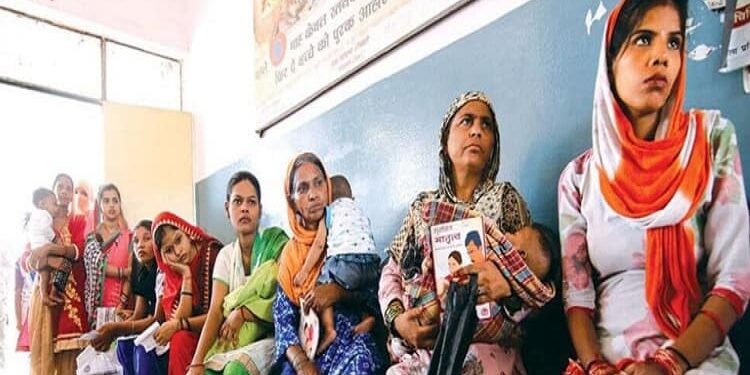Though meant to promote institutional deliveries, the Janani Suraksha Yojana has also led to higher vaccination rates, a study finds. The authors of a recent study to assess the impact of Janani Suraksha Yojana find that beneficiaries in districts with higher coverage of JSY had a greater chance of giving their babies each of the three vaccines.
JSY and Vaccination
In 2005, the Indian government rolled out Janani Suraksha Yojana (JSY), a maternal protection scheme, to promote institutional deliveries. The aim was to reduce deaths among mothers and newborns. But the scheme has also been able to boost child vaccination, even though it was not a planned goal, new research shows.
To assess the scheme’s impact, researchers use data on women’s health and economic indicators, and vaccination rates from the 2004 and 2012 rounds of the India Human Development Survey. The study, whose first round covers 41,554 families in 384 districts, gives a pre-JSY and post-JSY comparison. The authors use the District-Level Health Survey and the Annual Health Survey to get data on cash transfers made under the scheme.
The study collects information on three types of vaccines: BCG (the vaccine against tuberculosis, Bacillus Calmette–Guérin), DPT (diphtheria, pertussis, tetanus toxoid vaccine), and Measles. This is based on vaccination details from the last time each mother gave birth. A child in a JSY district was 4.4 percentage points more likely to get a BCG vaccine than a child in the other districts. This difference was 4.8 percentage points for DPT and 2.5 percentage points for measles. The measles vaccine is administered nine months after birth.
The authors also find links between socio-economic factors and the probability of getting vaccinated. For instance, parents’ education levels raised the chances of getting vaccinated, and so did being a male child. Being poor reduced the chances, the study finds.
JSY is a centrally sponsored scheme, which integrates cash assistance with delivery and post-delivery care. The Yojana has identified Accredited Social Health Activist (ASHA) as an effective link between the government and pregnant women. The scheme focuses on poor pregnant women with a special dispensation for states that have low institutional delivery rates, namely, the states of Uttar Pradesh, Uttarakhand, Bihar, Jharkhand, Madhya Pradesh, Chhattisgarh, Assam, Rajasthan, Orissa, and Jammu and Kashmir.
















